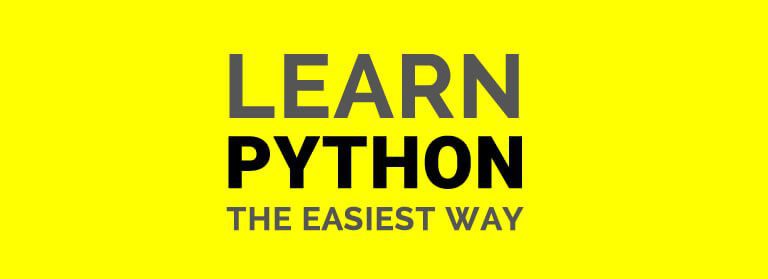How Difficult Is To Learn Python in Terrific 2024?


How Difficult is to Learn Python?
How Difficult is to Learn Python : The world of programming can seem like a complex and challenging landscape, filled with cryptic syntax and abstract concepts. However, amidst the perceived difficulty lies Python, a versatile and beginner-friendly language that has emerged as a popular choice for aspiring coders. But the question lingers: how difficult is it to learn Python?
This comprehensive guide delves into the learnability of Python, exploring various factors that influence the learning experience, addressing common misconceptions, and providing valuable tips to help you embark on your Python learning journey with confidence.
Python’s reputation as an easy-to-learn language stems from its clean and readable syntax, which closely resembles English and makes it accessible to beginners. Unlike languages like C++ or Java, which require strict adherence to syntax rules and complex concepts like memory management and data types, Python offers a more forgiving learning curve, allowing newcomers to focus on understanding fundamental programming concepts without getting bogged down in technical details.
Another factor that contributes to Python’s learnability is its extensive ecosystem of libraries and frameworks, which provide pre-built solutions for common tasks and enable developers to quickly prototype and deploy applications. Whether you’re interested in web development, data analysis, machine learning, or game development, Python has a library or framework to suit your needs, making it a versatile language for aspiring developers.
Furthermore, Python’s strong community support and abundant learning resources make it easier for newcomers to find help and guidance as they navigate their Python learning journey. From online tutorials and forums to coding bootcamps and mentorship programs, aspiring Python developers have access to a wealth of resources to help them succeed.
Despite its beginner-friendly nature, learning Python still requires dedication, practice, and patience. Like any new skill, mastering Python takes time and effort, and there may be moments of frustration along the way. However, with the right approach and mindset, anyone can learn Python and unlock the countless opportunities it offers in the world of programming.
In the following sections, we’ll explore various aspects of learning Python, from choosing the right resources and setting realistic expectations to overcoming common challenges and staying motivated throughout your journey. Whether you’re a complete beginner or an experienced programmer looking to add Python to your skill set, this guide will provide you with the knowledge and guidance you need to succeed. So let’s dive in and discover just how approachable and rewarding learning Python can be!
Unveiling the Factors: What Makes Python Easy to Learn?
Readability:
Unlike some programming languages known for their complex syntax, Python emphasizes readability. Its syntax closely resembles natural language (think English!), making it easier for beginners to grasp the code structure and logic. This intuitive design lowers the initial barrier to entry and allows learners to focus on understanding core concepts rather than deciphering complex syntax.
Abundant Learning Resources:
The Python community thrives on open-source principles, fostering a wealth of freely available learning resources. From beginner-friendly tutorials and interactive courses to comprehensive documentation and active online communities, there’s an abundance of support available to guide you through your learning journey.
Versatility and Applications: Python’s versatility extends beyond its beginner-friendly nature. It is widely used in various fields, including web development, data science, machine learning, and automation. This vast range of applications provides learners with practical motivation, knowing they can apply their acquired skills to solve real-world problems and build diverse projects.
Supportive Community:
The Python community is renowned for its welcoming and supportive nature. Online forums, communities, and dedicated websites connect learners with experienced Python developers who are often willing to answer questions, offer guidance, and troubleshoot challenges. This collaborative environment fosters a positive learning experience and empowers newcomers to overcome hurdles.
Dispelling the Myths: Addressing Common Misconceptions
Myth 1: Python is only for beginners. While Python excels as a beginner-friendly language, its versatility and depth make it suitable for all skill levels. As you progress, you can delve into more advanced concepts and leverage Python’s capabilities for complex projects.
Myth 2: Learning Python takes a long time. The timeframe for learning Python varies depending on your dedication, prior programming experience, and learning goals. However, with consistent practice and the right resources, you can grasp the fundamentals in a relatively short period and gradually build upon your knowledge over time.
Myth 3: Learning Python requires exceptional mathematical skills. While some areas of Python, like data science and machine learning, involve mathematical concepts, the core of Python programming does not necessitate advanced mathematical knowledge. As you delve deeper into specific fields, you can acquire the necessary mathematical skills alongside your Python learning journey.
Embarking on Your Journey: Tips for Learning Python Effectively
Start with the Basics:
Begin by establishing a solid foundation in the fundamental concepts of programming. This includes understanding variables, data types, operators, control flow statements, and functions. Utilize beginner-friendly tutorials and resources that explain these concepts in a clear and concise manner.
Practice Consistently:
Consistent practice is essential for solidifying your understanding and developing your coding skills. Dedicate time outside of learning resources to write code, experiment with different concepts, and work on personal projects. This hands-on practice allows you to apply your knowledge in real-world scenarios and gain valuable experience.
Embrace the Learning Community:
Don’t hesitate to seek help and guidance from the supportive Python community. Engage in online forums, participate in discussions, and connect with experienced developers. This collaborative learning environment can provide valuable insights, solutions to challenges, and motivation throughout your learning journey.
Make it Fun and Engaging:
Learning doesn’t have to be a solitary and monotonous experience. Explore interactive learning platforms, gamified Python learning tools, and collaborative coding projects to keep the learning process engaging and enjoyable.
Remember, the journey of learning Python is not about immediate mastery, but rather about consistent effort, embracing challenges, and enjoying the process of acquiring new skills. With the right approach, dedication, and the supportive resources available, you can conquer the perceived difficulty and unlock the potential of Python in your coding endeavors.
Finally How Difficult is to Learn Python?
Well it isn’t very difficult if you have the right mentor. Do you want to learn Python? My Python course on udemy is the most popular, highest rated and will give you a comprehensive Python learning experience. 1500 students has already enrolled since it’s launch in 2023! and learning Python flawlessly! Click on the button below and enroll today.







Responses